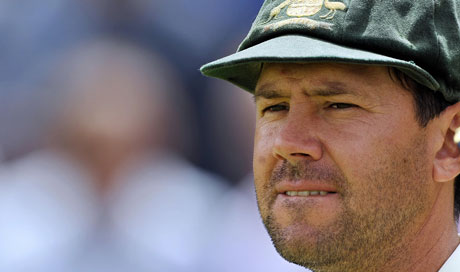Paul Coupar: Why the Aussie press love Flintoff
July 22nd, 2009 by TWC in England, Test cricket, The AshesThe Australian press has a new cricketing hero, a blue-collar boy made good, a smiling allrounder with the dash of a Keith Miller and a ticker the size of Ayers rock.
Unfortunately for Ricky Ponting, the man in question is Andrew Flintoff.
In the eyes of much of the local press Flintoff’s sinew-straining spell to turn the last day at Lord’s confirmed him – like Darren Gough a decade before – as an honorary Aussie, who by freak chance had been born in Preston, Lancashire not Preston, East Queensland.
Consider the last-day report in the Sydney tabloid, the Daily Telegraph:
“Patched-up conquering hero Andrew “Freddie” Flintoff said an emotional farewell to Lord’s as he brutally destroyed Australia …”
“Storming in on just one good leg, Flintoff (5-92) carried the weight of a nation on his shoulders and sent down a fearsomely fast barrage to send Australia into a deep Ashes abyss.
“Flintoff, fighting back tears, led the team off the ground as England’s 115-run victory was sealed …
“Flintoff’s wife Rachael was one of just many friends and family who paid tribute to Flintoff as the retiring superstar walked off Lord’s for the last time in Test cricket.”
This hints at several qualities that touch warm spots in Australia.
First, the injured bloke doing his duty resonates in a country which keeps fresh its memories of sacrifice in two world wars.
Second, Flintoff showed heart or ‘ticker’, performing when it mattered (against Australia) not when it didn’t (against anyone else).
Third, winning for his country clearly mattered to him, hence the tears.
Fourth, he is widely seen as a ‘good family bloke’ (unlike the ridiculed Shane Warne) and a good mate, who hasn’t forgotten where he came from.
With Flintoff on the charge, put-downs polished like a new ball in two decades of Australian dominance were hurled at unaccustomed targets.
In the Sydney Morning Herald, Peter Roebuck memorably described their attempts at resistance as like “throwing pies at an advancing tank”.
The assessment of Australia’s problems was frank. “Neither umpires, toss, luck, nor the conditions, though, were to blame for Australia’s poor position,” wrote Roebuck. “Throughout, their fate has lain in their own hands. For three and a half days the Australians were outgunned. At no stage did they look like the best side in the world.“
One image in the Telegraph summed up the reaction: a large picture of Mitchell Johnson with arrows and labels to various parts of his body and a dissection of what he needs to get right – which the Telegraph concluded were his wrist position, arm action, front-arm position and mental state. So, plenty to work on in the nets.
The focus was at least as much on Australian failings as on disputed English catches or confused umpiring. Which is not to say that Andrew Strauss will find Sydney-siders lining up to buy him a Shiraz next time he visits with his Australian wife.
Pat Sheil in the SMH claims Strauss and British sportsmanship, “sunk into abject ignominy over that ‘catch’. The current England captain, and his rather loose interpretation of what is or is not cricket will live long in the antipodean mind.”
If Flintoff presses the right buttons for many Australians, half-fitting a half-conscious image of the Anzacs who went over the top, Strauss (somewhat unfairly) fits an image of the sort of generals who sent them there.
But once the froth has washed away, it will be fascinating to see what view posterity takes of Flintoff. Will aficionados in decades to come look at sporadic brilliance and Test averages of 31 (batting) and 32 (bowling) and wonder what the fuss is about?
One suspects much will hinge on the next three Tests. If England win, it will be much easier to see Flintoff as the hero who won two Ashes series single-handed and went out early but at the top.
Victory might invest his career with the kind of glow associated with the magical Welsh fly-half Barry John, who returned from beating New Zealand on the 1971 Lions tour and at 27 decided there were no more worlds to conquer and retired.
But if England lose, questions about what Flintoff really achieved – and nagging doubts about putting the IPL before Test cricket – may move towards the foreground.
Ponting is another whose legacy hangs to a perhaps unfair degree on the next three Tests. His reputation is unlikely to survive becoming only the second Australian captain to lose twice in England.
The remaining Tests are not just a fight for the Ashes but a fight for the legacy of two fine cricketers. One of them will have to lose.
Paul Coupar is a former features editor of The Wisden Cricketer. He is now a freelance journalist based in Sydney.
Posted in England, Test cricket, The Ashes | 2 Comments »


